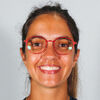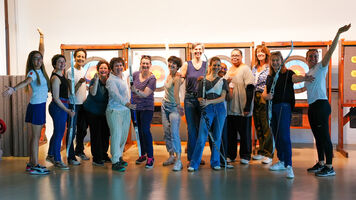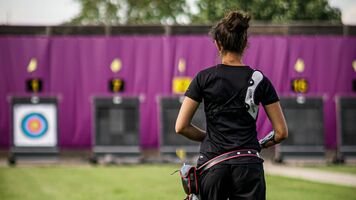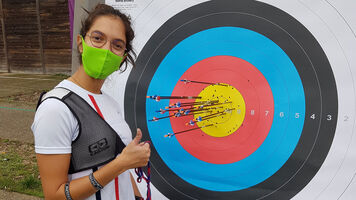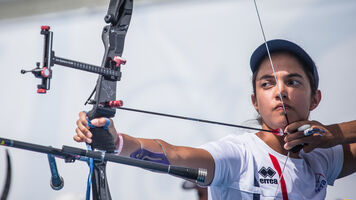Audrey’s blog: A season with no medal – so a failed season?
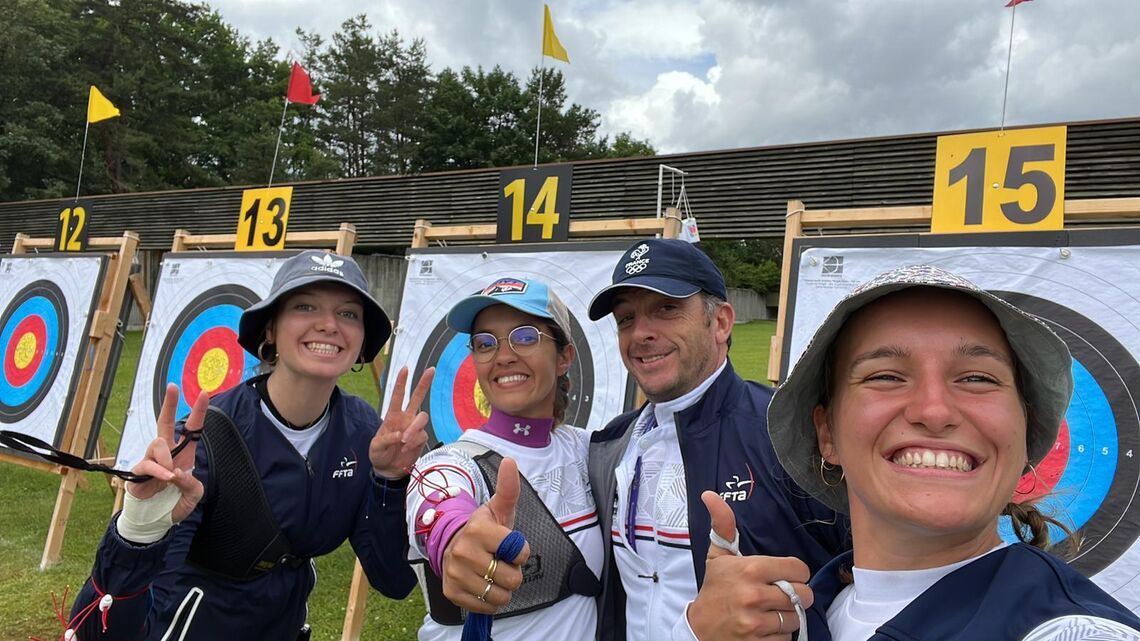
This blog was written by Audrey Adiceom, offering insight into her life as an elite archer with the French national team.
With the Paris 2024 Olympic Games just two years away, this season has been a real turning point in my sporting career. The watchwords were, more than ever, adaptability and hard work.
There was a very clear schedule from September 2021 to the end of January 2022 at the national training centre in Paris. Practise every day with my coach Aurore Trayan and, if selected for the French team, work with the head of the women’s squad Jean-Manuel Tizzoni.
I like the way this works. They are two caring people who know me and help me to develop in the right direction.
After a lukewarm indoor season with uneven results but very important personal self-enhancements, by mid-January I felt that I had improved technically and mentally. This progress is linked to the indoor season but also to the big blocks of work punctuated by great training camps, in particular at the end of November in Reunion Island where almost all the French squad and the entire staff went.
On camps like this, we are all 100% present for shooting with no school or work during the day. Some of us catch up in the evening. So it’s a time for us to train in complete immersion, particularly in head-to-head and competition simulations.
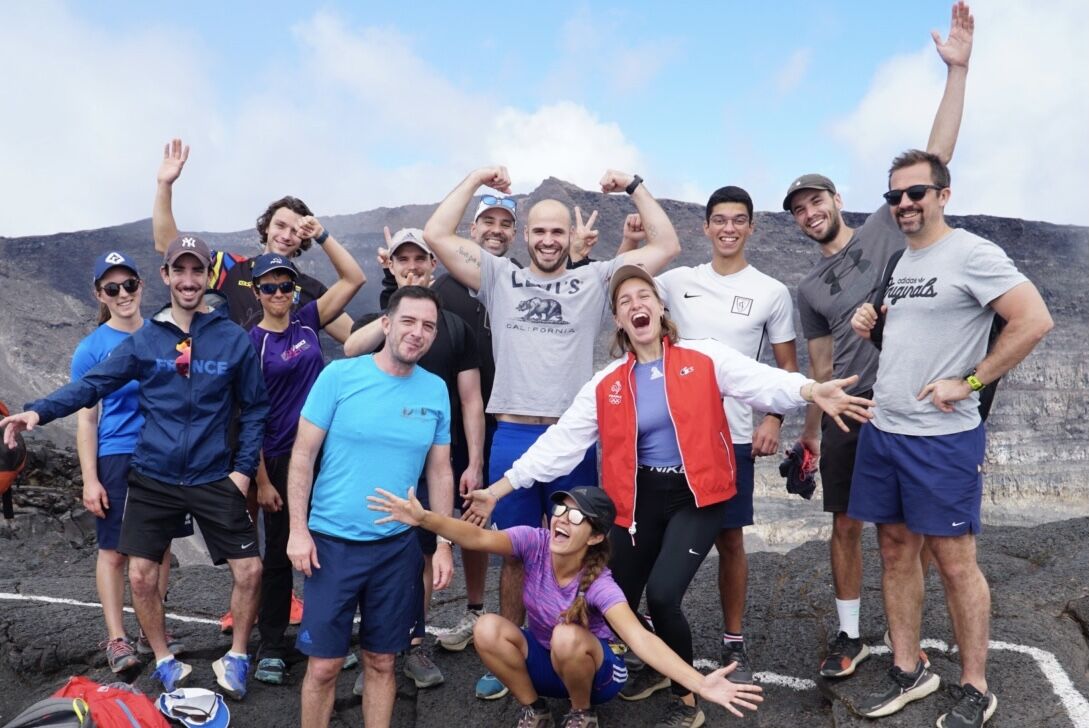
The end of 2021 was also essential for me. I finished my master’s degree in business intelligence in December and then got a contract at CRITT Informatique in early January 2022. It’s an IT development company based in Poitiers, which has been working with the French national training centre for over 20 years.
In France, having a job while still being a high-level athlete is possible thanks to the concept of the ‘professional integration contract’, an agreement between a federation, the company, the national sports agency, various entities such as regional committees and the athlete. The idea is that for one year (from 1 January to 31 December), an athlete can have a fixed monthly salary – which is financed by the employer when working and by the other organisations when practising sport.
In my case, I work 14 hours a week for my employer and I train between 30 and 35 hours a week. During the weeks in which I am on a training camp or at an archery competition, I do not have to work. I am really lucky because doing both things is really important to me.
I admire and respect professional sportsmen and women who spend all the day training. I know I can’t do it. I need to do something else, to keep learning and developing other skills. This allows me to be more focused when I am training. It requires a bit of organisation, of course, but I need that balance.
Working for a company makes me better at archery. It’s a personal development thing, I think. When I manage to complete an assignment for my employer… when I know that I am a link in the chain and that my work has meaning for me and the team I work with, it feels really good, I feel useful.
Since the beginning of February, we’ve had a new head coach from Korea, Oh Seon Tek.
Ahead of the next Olympic and Paralympic Games in Paris, the French national sports agency launched a plan to help federations recruit new coaches based on certain high-performance criteria. The ultimate objective is to improve French performance at our home Olympic Games.
Until the national trials at the end of March, I was mainly working with my coach Aurore and four other archers (Florian Billoue, Lucas Daniel, Romain Fichet and Lou Thirion). As the other archers were all away at the European Indoor Championships, we were the first to work with coach Oh. We spent about two months training together on targets set side by side.
Just as before he arrived, Aurore was responsible for the training plan. She decided the number of arrows to be shot, specific goals for each athlete, and scheduled group practice sessions and weight training. The main initial difference was technical.
For example, coach Oh found us all over extended. Over the course of the last season, my draw length has decreased by at least three centimetres, which has had an impact on the placement and axis of the shoulders as well as on the draw and final release. I also had to slow down my shot, while trying to be as smooth as possible. A few months later, I also changed my grip on the string to make it more shallow.
We had a philosophy of archery in France that was clearly different from the Korean approach he brought. We had to assimilate all these changes and the national selections were fast approaching.
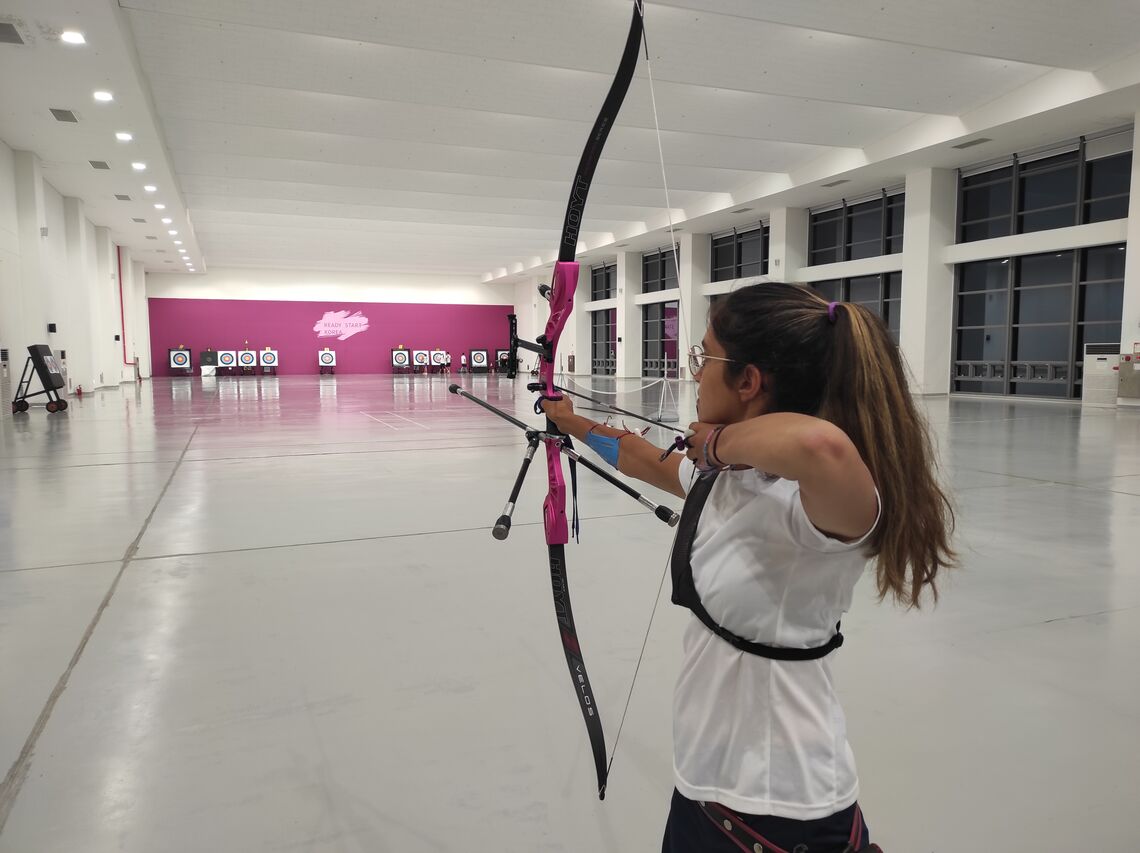
During the last training session before the trials, I remember saying to Aurore, ‘I have no idea what it will be like. I just want to apply my shooting strategy and adopt the right behaviour’.
I had a magical week where I was able to concentrate on simple things, which made my shooting better and better.
After five intense days, I finished first in the selections and won my place in the French team. This meant a lot to me after missing out on selection last year and the dream of the Olympic Games in Tokyo. Looking back, I think that having my head filled with the technical developments of the few weeks prior allowed me to stay focused on myself and not on the challenge.
The group that was chosen helped me a lot throughout the season. We could exchange together on the technical areas we were all working on and so better understand what was required. They are more than training colleagues, they are friends. (I’ll take this opportunity to thank the FCB – the name we gave ourselves because some of us are fans of Barcelona football club – my peers in the French training centre and the staff, coaches Aurore, Jean and Nicolas, physical trainer Romain and assistant coach Rémi.)
The season, as for everyone else, was then intense. We took part in the Hyundai Archery World Cup stages in Antalya and Gwangju, the European Championships and then the World Cup stage at home in Paris. Before starting this block of competitions, I knew that there were still a lot of technical things I had to work on. My goal was to be ready for the Europeans and Paris.
I achieved my best performance at a European Championship by finishing sixth in the individual event, which booked an individual quota for France for the 2023 European Games. Paris didn’t go so well; I was eliminated – and our team – in competitive matches lost in shoot-offs.
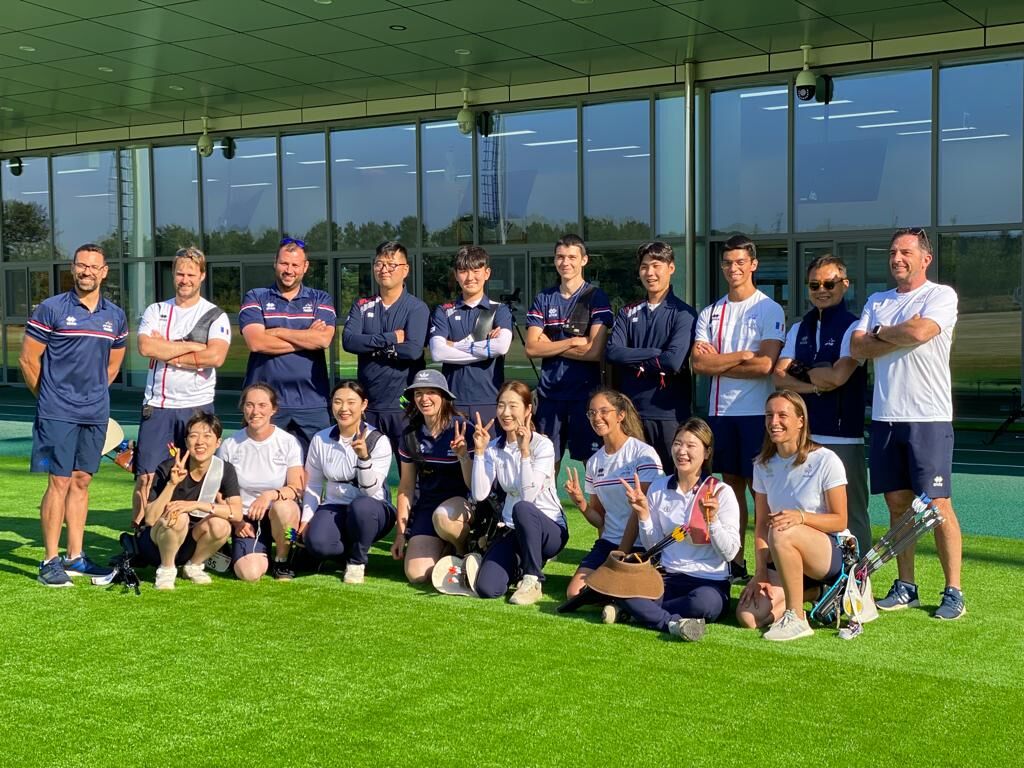
I didn’t win any international medals in 2022 like I did in 2021. So should I think this season is a failure?
In a way yes, of course. We all train to win the competitions we enter. It’s never fun to come back empty-handed with a very variable level of performance. I’ve worked hard to integrate a lot of technical changes. It’s a big change, but I know I needed it. Sometimes you have to deconstruct to build something more solid.
If there’s one thing I’ve learnt from this season, it’s that I love to work. The goal of a perfect performance and the dream of international medals motivates me every day to go to training, but what motivates me to stay and continue is the work, understanding the mechanics of the sport while learning to let go when necessary.
I am learning to surpass my own expectations. I am learning to love the rigour and discipline behind elite sport. I am learning to accept my failures in order to transform them into learning. I am learning to find success in any result.
As I’ve written in these blogs before, archery alone is not always enough for me to flourish in this sport. I’ve been on an emotional rollercoaster, but thanks to all the kind people around me, I’m always working to come out of any experience stronger – so that one day I can achieve the results I yearn for.
Images courtesy Audrey Adiceom.
